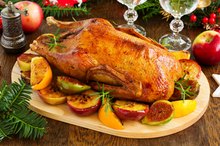Beef Tenderloin Nutrition
Beef tenderloin, also called the filet, is a high quality cut from the loin of beef. Tenderloin is the source of various steaks and recipes including filet mignon, carpaccio, Chateaubriand and Stroganoff. The nutritional value of the tenderloin will be greatly affected by the degree to which it’s been trimmed of fat and silver skin.
Protein
Completely trimmed of fat, a 3 oz. medallion of beef tenderloin contains 24 g of protein, according to the U.S. Department of Agriculture, USDA. Two-thirds of all the calories in beef tenderloin come from protein. The protein of beef is high quality, containing all the essential amino acids. Trimmed to 1/8 inch of fat, however, 3 oz. of tenderloin contains only 15 g of protein, accounting for only one-third of the total calories.
- Completely trimmed of fat, a 3 oz.
- medallion of beef tenderloin contains 24 g of protein, according to the U.S. Department of Agriculture, USDA.
Fat
Gyro Meat Nutritional Information
Learn More
Even when perfectly trimmed, beef tenderloin will not be entirely fat-free. Veins of fat marbling the meat provide 6 g of fat in a 3 oz. cut. That amount increases significantly to 15 g, accounting for two-thirds of the total calories, if the beef is trimmed to 1/8 inch of fat. In either case, about one-third of the fat of beef tenderloin is saturated fat, the “bad” cholesterol that contributes to atherosclerosis.
- Even when perfectly trimmed, beef tenderloin will not be entirely fat-free.
- In either case, about one-third of the fat of beef tenderloin is saturated fat, the “bad” cholesterol that contributes to atherosclerosis.
Carbohydrates
Beef tenderloin, like other cuts of beef, is a carbohydrate-free food. That is, it does not contain any sugar, fiber or other carbs. It therefore has no rating on the glycemic index and no effect on blood sugar. This makes it an attractive choice for low-carb dieters and diabetics, both of whom should prefer completely trimmed, leaner cuts to restrict their intake of saturated fats. Some sauces can also add hidden carbohydrates.
- Beef tenderloin, like other cuts of beef, is a carbohydrate-free food.
- That is, it does not contain any sugar, fiber or other carbs.
Vitamins
The Nutrition in Boneless New York Strip Steaks
Learn More
Beef tenderloin is a significant source of certain B vitamins 2. A 3 oz. serving contains 35 percent of your daily intake of niacin, 26 percent of vitamin B6 and 19 percent of your B12. Beef tenderloin also contains significantly lesser amounts of folate, vitamin E, riboflavin, vitamin K, thiamine and pantothenic acid.
- Beef tenderloin is a significant source of certain B vitamins 2.
- Beef tenderloin also contains significantly lesser amounts of folate, vitamin E, riboflavin, vitamin K, thiamine and pantothenic acid.
Minerals
According to the USDA, beef tenderloin is a good source of several different minerals, particularly zinc, phosphorus and selenium. A 3 oz. steak has almost half your daily intake of selenium, about 30 percent of your zinc and about 20 percent of your phosphorus. Beef also contains significant amounts of iron, magnesium and potassium, with between 5 and 10 percent of your recommended daily intake of each. Beef also contains calcium, copper and sodium in negligible quantities.
- According to the USDA, beef tenderloin is a good source of several different minerals, particularly zinc, phosphorus and selenium.
- Beef also contains significant amounts of iron, magnesium and potassium, with between 5 and 10 percent of your recommended daily intake of each.
Related Articles
References
- Nutrition Data Website: Beef Tenderloin, Zero Fat
- Nutrition Data Website: Beef Tenderloin 1/8 Inch Fat
- Beef, ground, 85% lean meat / 15% fat, crumbles, cooked, pan-browned. FoodData Central. U.S. Department of Agriculture. Published April 1, 2019.
- US Department of Agriculture. MyPlate: Nutrients and health benefits.
- Clifford J, Curely J. Water-soluble vitamins: B-complex and vitamin C. Colorado State University Extension. Updated December 2019.
- National Institutes of Health Office of Dietary Supplements. Iron: Fact sheet for health professionals. Updated February 28, 2020.
- American College of Allergy, Asthma and Immunology. Meat allergy. Updated May 8, 2019.
- Song M, Garrett WS, Chan AT. Nutrients, foods, and colorectal cancer prevention. Gastroenterology. 2015;148(6):1244-60.e16. doi:10.1053/j.gastro.2014.12.035
- Wolk A. Potential health hazards of eating red meat. J Intern Med. 2017;281(2):106-122. doi:10.1111/joim.12543
- Daley CA, Abbott A, Doyle PS, Nader GA, Larson S. A review of fatty acid profiles and antioxidant content in grass-fed and grain-fed beef. Nutr J. 2010;9:10. doi:10.1186/1475-2891-9-10
Resources
Writer Bio
Joseph Nicholson is an independent analyst whose publishing achievements include a cover feature for "Futures Magazine" and a recurring column in the monthly newsletter of a private mint. He received a Bachelor of Arts in English from the University of Florida and is currently attending law school in San Francisco.









